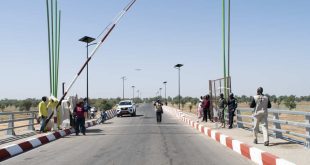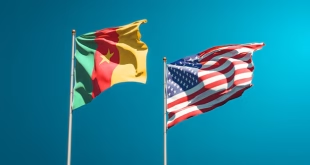Business in Cameroon | The entry of Starlink, Elon Musk’s satellite internet service, into the Cameroonian market has raised concerns among authorities who fear it could pose a threat to the incumbent operator, Camtel. “In Cameroon, Camtel is the incumbent operator, the only one competent to manage transport infrastructures. If Camtel does not improve its performance, Starlink will overshadow it,” stated Minette Libom Li Likeng, the Minister of Posts and Telecommunications, during the official launch of the Industry Maker Academy (IMA 2024) on April 4. The IMA 2024 is a program driven by the non-profit Digital Transformation Alliance (DTA) in partnership with the government. It aims to help businesses master cutting-edge technologies.
Starlink’s appeal lies in its minimal equipment requirement, autonomous installation, reliable high-speed internet, and the ability to connect from even the most remote areas. “All you need is Starlink equipment, a code, plug it in and you’re connected… with all the risks it entails,” Libom Li Likeng explained. Another good aspect is that with Starlink’s service, users will definitively avoid disruptions linked to frequent fiber optic breakages, providing an alternative to meet the growing demand for high-quality broadband connectivity. Unlike terrestrial networks like those operated by Camtel, which require significant investment for cable or fiber optic deployment, Starlink offers a straightforward implementation process.
According to the Digital Report 2024 by creative agency We Are Social and Meltwater, Cameroon has 12.73 million internet users as of January 2024, with a penetration rate of 43.9%. This demonstrates the market potential for Starlink in a country where users frequently face poor coverage and service quality, issues often highlighted by the Telecommunications Regulatory Agency (ART), which regularly issues warnings to telecom operators.
The March 14 Internet blackout following incidents on certain undersea fiber optic cables has heightened the interest of Internet users in Starlink. However, the company has yet to receive regulatory approval from Cameroonian authorities to operate within the country. “I have already met with Starlink’s Director for Africa, and we have informed them that the Cameroonian market is open but regulated. A license is required,” Libom Li Likeng mentioned, adding that they were directed to ART to obtain the necessary operating license. Despite ongoing procedures to regularize Starlink’s presence in Cameroon, the minister noted instances of fraudulent commercial activities and exploitation of Starlink terminals.
The minister expressed concerns that uncontrolled use of such equipment could pose security risks and threaten personal data protection. “Protecting personal data is akin to how we protect ourselves and dress. Using new technologies without considering how information is protected and managed leaves you at the mercy of fraudsters,” Libom Li Likeng argued. She also mentioned sending a note to Starlink a few days ago, requesting the blocking of Cameroonian users and urging them to wait for Starlink to officially obtain the license to use its services, to “protect” the market.
 CameroonOnline.org Cameroon news, Actualité Camerounaise, live Web TV & Radio, World News and a lot more
CameroonOnline.org Cameroon news, Actualité Camerounaise, live Web TV & Radio, World News and a lot more




